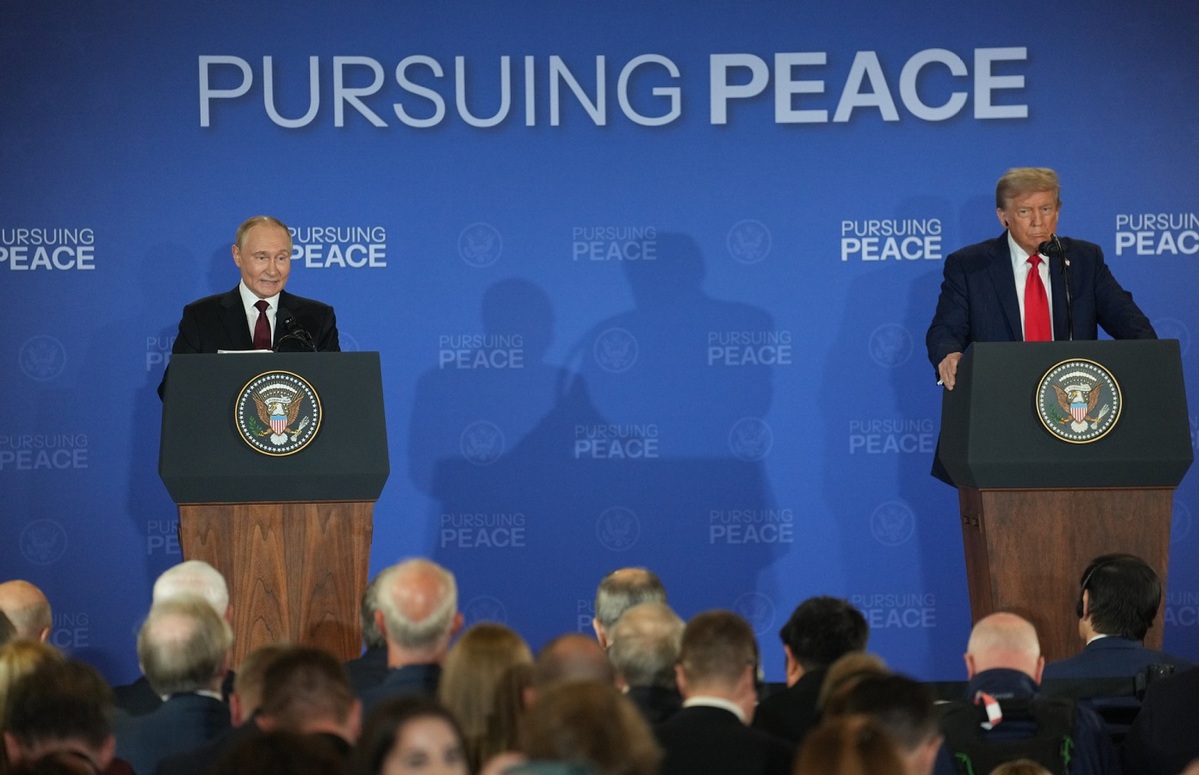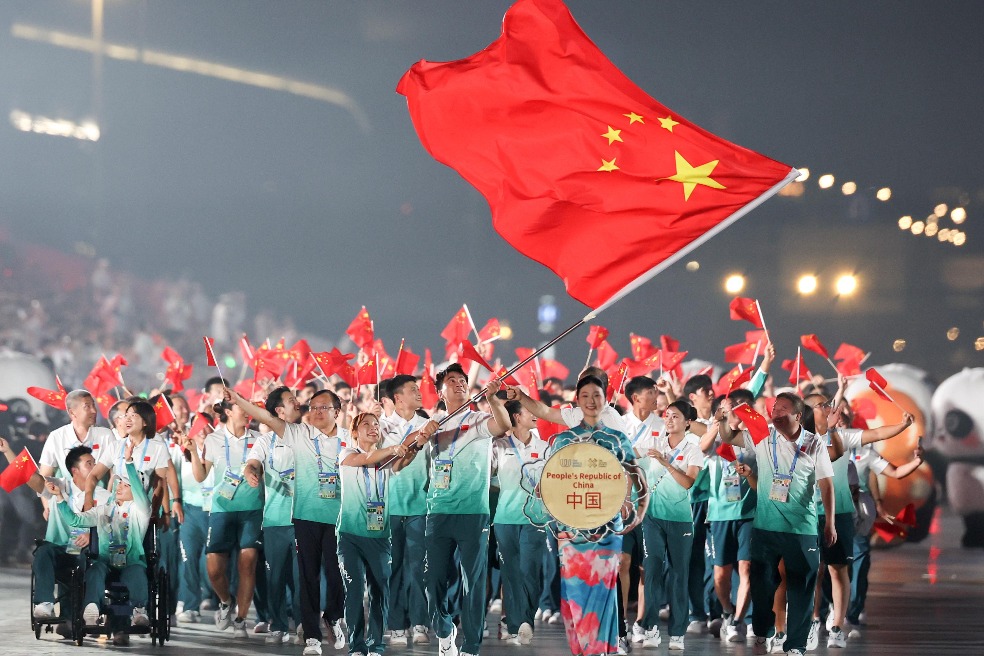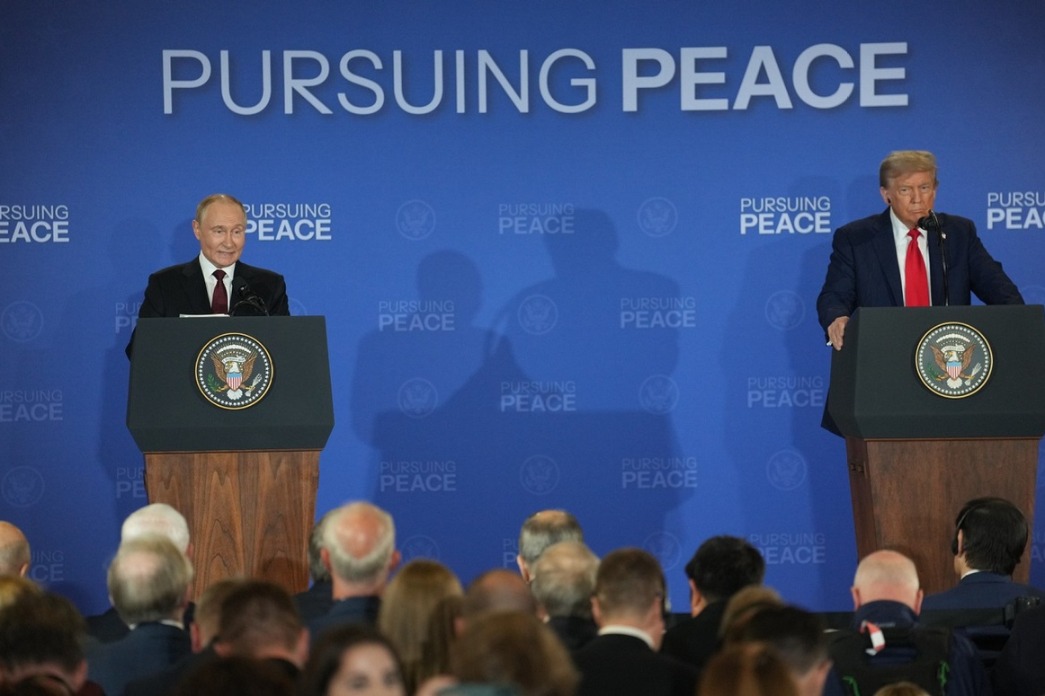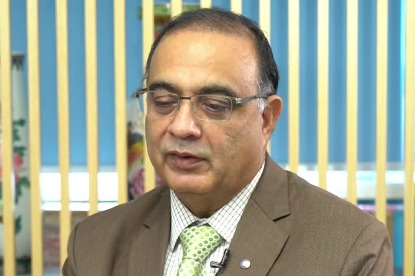The shadows of peace are preferable to the fog of war


The Alaska Summit between US President Donald Trump and Russian President Vladimir Putin represents a pivotal moment in the ongoing effort to resolve the conflict in Ukraine, as well as in the broader history of relations between the two military superpowers. In the words of President Trump, "There is no deal until there is a deal." This statement, while pragmatic, also reflects the guarded expectations surrounding the summit and its outcome. For many observers, the lack of a concrete breakthrough or ceasefire agreement was a source of disappointment. However, expecting such a major resolution from a single summit, especially one prepared in a very short period of time, was somewhat unrealistic, given the complexity of the conflict and the absence of key parties such as European representatives - and, of course, the President of Ukraine, Volodymyr Zelensky.
The fact that the summit did not result in an immediate ceasefire should not overshadow its significance. The direct, face-to-face exchange between the two leaders marked a rare opportunity for dialogue at a time when tensions between the United States and Russia are palpable. Despite the many obstacles, this interaction created a channel of communication and, perhaps more importantly, a modicum of trust. In diplomacy, trust is often the foundation upon which further progress is built, and in this sense, the Alaska Summit may prove to be a step in the right direction. While this initial meeting did not yield the kind of breakthrough that many had hoped for, it has laid the groundwork for future discussions that may ultimately lead to a ceasefire - and, further down the line, a long-lasting peace agreement.
The theme of the Alaska press conference - "Pursuing Peace" - was an apt descriptor of the leaders’ intent. Despite the challenges that lie ahead, the fact that both Trump and Putin are willing to give peace a chance is an important and commendable step. The road to peace is rarely smooth, and the obstacles in this particular conflict are numerous. The Ukrainian crisis involves complex geopolitical issues, entrenched national interests, and a multitude of stakeholders, including regional powers, NATO, and the European Union. Expecting an instant resolution at a single summit was, therefore, unrealistic. It would have been naive to think that a comprehensive ceasefire could be negotiated on the spot, especially without the involvement of the Ukrainian leadership or European representatives who are directly impacted by the conflict.
The alternative to continued diplomacy is the tragic prolonging of the crisis. Should hostilities persist, the risks of further escalation — potentially leading to a broader and more dangerous conflict — are very real. It is important to remember that the consequences of a prolonged crisis in Ukraine extend far beyond the country’s borders, with significant implications for global stability, international relations, and economic security. As such, the pursuit of peace, while difficult, remains the most preferable option. Even if a true resolution is still far off, the simple act of engaging in dialogue creates a space where peace might eventually emerge.
In international politics, the real dichotomy is not between the good and the bad, but between what is preferable and what is abominable. Given the gravity of the situation, the fact that Trump and Putin are willing to entertain the possibility of peace - however distant it may be - should be seen as a step forward. It is often through painstaking negotiations, fraught with tension and difficulty, that the fog of war begins to dissipate. The shadows of peace, made up of haunting ethical dilemmas and heartbreaking compromises, are preferable to the fog of war.
David Gosset, a specialist in global affairs and sinology, is the founder of the China-Europe-America Global Initiative.
The views don't necessarily represent those of China Daily.
If you have a specific expertise, or would like to share your thought about our stories, then send us your writings at opinion@chinadaily.com.cn, and comment@chinadaily.com.cn.

































